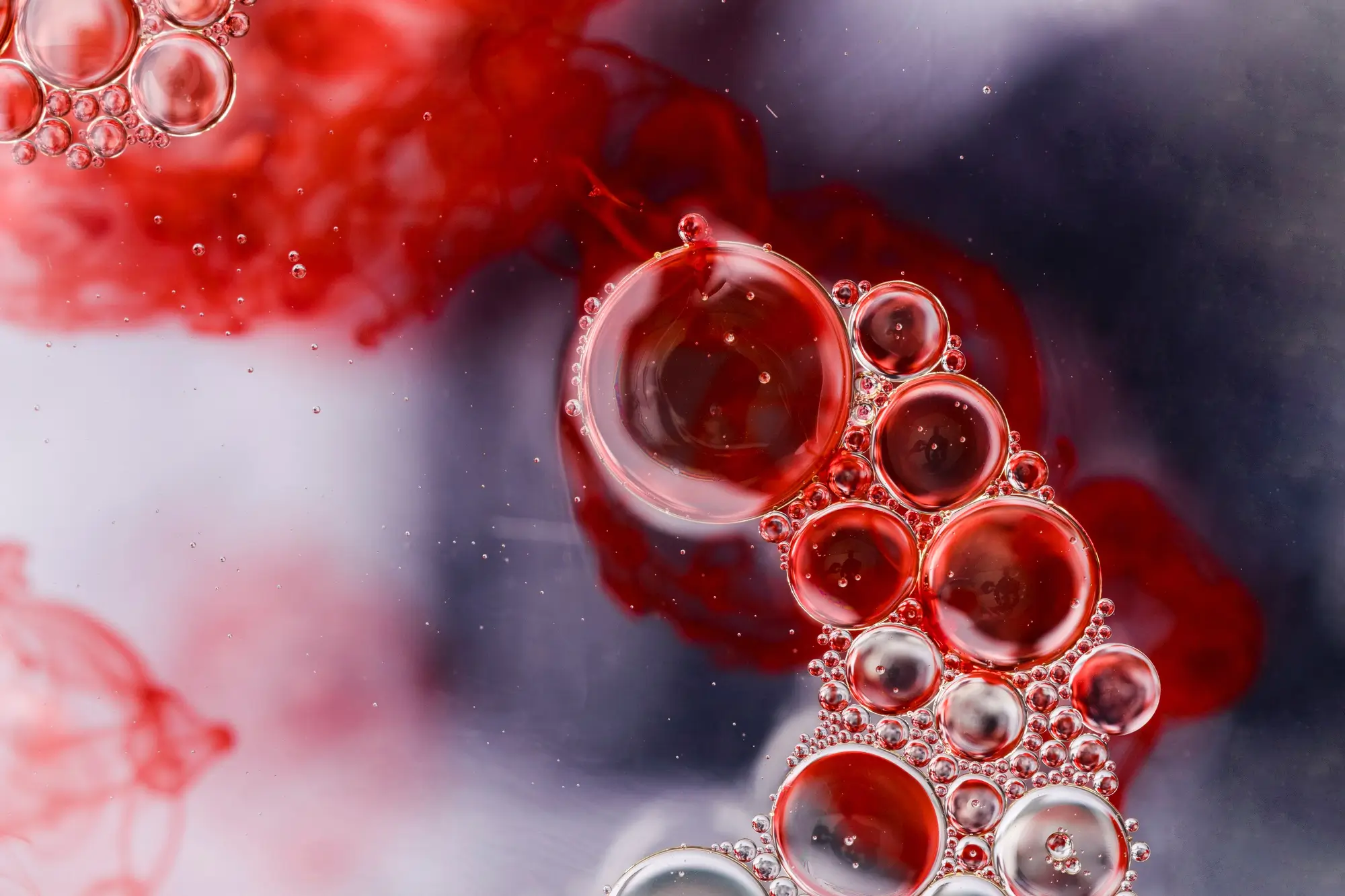Epigenetics Coach: The Key to a Healthier Life
An Epigenetics Coach helps to understand how to function optimally on all levels, including the following

Edmund Lou
What if we could manage our wellbeing at the cellular level? What if we could actively influence our health through targeted measures and even positively influence our genes? This is exactly where the Epigenetic Coach comes in - with an individual concept, he helps to sustainably improve the quality of life and to strengthen health in the long term.
What is epigenetics?
Epigenetics is the science that studies the influence of environmental factors and lifestyle habits on the activation or deactivation of genes. Genes can be considered a kind of “instruction manual” for the body. Whether and how these building instructions are used depends not only on genetic makeup, but also on influences such as diet, sleep, stress and environmental toxins. In other words, lifestyle plays a key role in determining which genetic programs run — and which don't.
Why is epigenetics so important?
It used to be assumed that genes determine life like a fixed script. Today we know that genes are only the basis, but the script is actively co-written! Epigenetics therefore means self-determination over one's own health.
Especially in connection with longevity, i.e. a long and healthy life, it is clear that epigenetic changes can positively influence longevity and quality of life. Emotions also play a role here: Stress, joy, anxiety — all of these emotional states can trigger epigenetic changes and influence gene activation. Especially when they occur chronically, they can have a greater influence on the activity of genes.
Conversely, certain behavioral patterns can be embedded in the genes and shaped by awareness in everyday life.
Cancer patients, for example, experience a better and faster recovery when they have positive emotions and look to the future positively than when they harbor negative emotions. (1)
In addition, transgenerational issues show that the experiences and habits of previous generations can influence one's own gene regulation. In this way, the mother's eating habits can have an effect on the subsequent child even before fertilization.
What does an epigenetics coach do?
An epigenetics coach helps you find the right tools to maximize wellbeing. The aim is to steer epigenetic markers in the best possible direction. In concrete terms, this means implementing targeted lifestyle changes:
- Optimize nutrition: Which diet is ideal? Which nutrients are needed? It is not about the number of calories, but about giving the body what best appeals to the genes.
- Improve lifestyle: This is about factors that can make a difference in everyday life — from stress management to breathing exercises to a conscious daily structure that supports health.
- Optimize sleep: Sleep is a key to epigenetic health. It is often simple adjustments such as a fixed sleep routine, reducing blue light or the correct use of dietary supplements that can dramatically improve sleep quality.
- movement: Movement also has a direct effect on an epigenetic level. Which type of sport is suitable and how often makes sense is individually coordinated.
- Biohacks: From ice baths to unusual gadgets in everyday life, various factors can have an influence.
What to expect from epigenetic coaching?
Epigenetic coaching is individual and holistic. There is no “one size fits all” solution, because the genes are unique — just like the life story and goals of every person.
Good coaching therefore goes far beyond general advice. Together, we work out what makes the biggest difference individually in order to develop their full potential and create the best conditions for a long and healthy life.
Many epigenetics coaches specialize individually, e.g. more in the area of trauma or some also work intensively with nutrients and laboratory values. Cooperation is also often very intensive and over a longer period of time in order to individually integrate the best measures at the optimal time.
Examples of positive changes through epigenetic approaches:
- Through targeted intake of vitamin D and other nutrients such as B vitamins and magnesium as well as the optimization of sleep patterns, a chronically exhausted patient was able to regain energy for everyday life. This came after a long odyssey of doctors, which lasted several years and in which no sustainable solution was found.
- A client who suffered from mood swings after the birth of her children benefited from an individual diet that took into account omega-3 fatty acids and other essential micronutrients.
- Targeted cold therapies (e.g. ice baths) and breathing techniques improved stress tolerance and relaxed the everyday life of some clients.
Why is it worthwhile to have epigenetic coaching?
Epigenetics coaching is worthwhile for anyone who wants to get more out of their life. This is not just about the absence of illness, but about functioning optimally at all levels. More energy, better mood, a strong immune system, and clear, focused thinking are just some of the benefits that can be achieved through the right epigenetic adjustment.
Writing your own screenplay means that every decision can contribute to a long, healthy and fulfilling life. An epigenetics coach helps you find the best way to get there and actively shape individual health.
References
1: https://journals.sagepub.com/doi/10.1177/1359105308097963?icid=int.sj-abstract.similar-articles.4
Publiziert
16.12.2024
Kategorie
Lifestyle

Scientific Terms
Epigenetics
From ancient Greek π epi 'to, moreover, 'and genetics
Refers to changes in a cell's gene expression that do not involve a change in the DNA code. Instead, the DNA and histones around which the DNA is wrapped are “marked” with removable chemical signals (see demethylation and deacetylation). Epigenetic tags tell other proteins where and when to read the DNA. This is comparable to a post-it on a book page that says “Skip.” A reader will ignore the page, but the book itself hasn't been changed.
Genetics
Science of heredity and genetic variation.
What if we could manage our wellbeing at the cellular level? What if we could actively influence our health through targeted measures and even positively influence our genes? This is exactly where the Epigenetic Coach comes in - with an individual concept, he helps to sustainably improve the quality of life and to strengthen health in the long term.
What is epigenetics?
Epigenetics is the science that studies the influence of environmental factors and lifestyle habits on the activation or deactivation of genes. Genes can be considered a kind of “instruction manual” for the body. Whether and how these building instructions are used depends not only on genetic makeup, but also on influences such as diet, sleep, stress and environmental toxins. In other words, lifestyle plays a key role in determining which genetic programs run — and which don't.
Why is epigenetics so important?
It used to be assumed that genes determine life like a fixed script. Today we know that genes are only the basis, but the script is actively co-written! Epigenetics therefore means self-determination over one's own health.
Especially in connection with longevity, i.e. a long and healthy life, it is clear that epigenetic changes can positively influence longevity and quality of life. Emotions also play a role here: Stress, joy, anxiety — all of these emotional states can trigger epigenetic changes and influence gene activation. Especially when they occur chronically, they can have a greater influence on the activity of genes.
Conversely, certain behavioral patterns can be embedded in the genes and shaped by awareness in everyday life.
Cancer patients, for example, experience a better and faster recovery when they have positive emotions and look to the future positively than when they harbor negative emotions. (1)
In addition, transgenerational issues show that the experiences and habits of previous generations can influence one's own gene regulation. In this way, the mother's eating habits can have an effect on the subsequent child even before fertilization.
What does an epigenetics coach do?
An epigenetics coach helps you find the right tools to maximize wellbeing. The aim is to steer epigenetic markers in the best possible direction. In concrete terms, this means implementing targeted lifestyle changes:
- Optimize nutrition: Which diet is ideal? Which nutrients are needed? It is not about the number of calories, but about giving the body what best appeals to the genes.
- Improve lifestyle: This is about factors that can make a difference in everyday life — from stress management to breathing exercises to a conscious daily structure that supports health.
- Optimize sleep: Sleep is a key to epigenetic health. It is often simple adjustments such as a fixed sleep routine, reducing blue light or the correct use of dietary supplements that can dramatically improve sleep quality.
- movement: Movement also has a direct effect on an epigenetic level. Which type of sport is suitable and how often makes sense is individually coordinated.
- Biohacks: From ice baths to unusual gadgets in everyday life, various factors can have an influence.
What to expect from epigenetic coaching?
Epigenetic coaching is individual and holistic. There is no “one size fits all” solution, because the genes are unique — just like the life story and goals of every person.
Good coaching therefore goes far beyond general advice. Together, we work out what makes the biggest difference individually in order to develop their full potential and create the best conditions for a long and healthy life.
Many epigenetics coaches specialize individually, e.g. more in the area of trauma or some also work intensively with nutrients and laboratory values. Cooperation is also often very intensive and over a longer period of time in order to individually integrate the best measures at the optimal time.
Examples of positive changes through epigenetic approaches:
- Through targeted intake of vitamin D and other nutrients such as B vitamins and magnesium as well as the optimization of sleep patterns, a chronically exhausted patient was able to regain energy for everyday life. This came after a long odyssey of doctors, which lasted several years and in which no sustainable solution was found.
- A client who suffered from mood swings after the birth of her children benefited from an individual diet that took into account omega-3 fatty acids and other essential micronutrients.
- Targeted cold therapies (e.g. ice baths) and breathing techniques improved stress tolerance and relaxed the everyday life of some clients.
Why is it worthwhile to have epigenetic coaching?
Epigenetics coaching is worthwhile for anyone who wants to get more out of their life. This is not just about the absence of illness, but about functioning optimally at all levels. More energy, better mood, a strong immune system, and clear, focused thinking are just some of the benefits that can be achieved through the right epigenetic adjustment.
Writing your own screenplay means that every decision can contribute to a long, healthy and fulfilling life. An epigenetics coach helps you find the best way to get there and actively shape individual health.
Referenzen
1: https://journals.sagepub.com/doi/10.1177/1359105308097963?icid=int.sj-abstract.similar-articles.4
Publiziert
16.12.2024
Kategorie
Lifestyle

Wissenschaftliche Begriffe
Epigenetics
From ancient Greek π epi 'to, moreover, 'and genetics
Refers to changes in a cell's gene expression that do not involve a change in the DNA code. Instead, the DNA and histones around which the DNA is wrapped are “marked” with removable chemical signals (see demethylation and deacetylation). Epigenetic tags tell other proteins where and when to read the DNA. This is comparable to a post-it on a book page that says “Skip.” A reader will ignore the page, but the book itself hasn't been changed.
Genetics
Science of heredity and genetic variation.
.svg)














